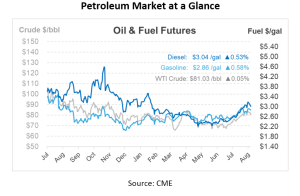
What is it – Slops
In a recent What Is It Wednesday article, we took a deep dive into the world of used oil recycling, revealing how this process revives spent lubricants. As we venture into the maritime industry, a different kind of recycling challenge emerges – dealing with a unique byproduct known as “slops”.
Today, we are exploring the lesser-known, but equally important, aspect of maritime operations. We will define what the term “slops” means, explain the removal process, and reveal the intricacies of the obligations and regulations around the process.
What are slops?
“Slops” refers to the residual mixture that’s produced from tank cleaning operations on oil tankers or similar vessels. It typically comprises water, oil, sludge, and other various chemicals. The composition of slops can vary based on the type of oil being transported and the cleaning agents used.
Slops Removal
Removal of these waste materials can be a complex operation, given the varied composition of the substances involved. It typically involves a few key steps. Initially, a three-phase separator is used to break down the slops into its three core components: oil, water, and solids. Heat is often applied to facilitate this separation process, along with certain chemicals and mechanical separation. The oil is generally reclaimed for use, the water is treated and discharged under regulatory guidelines, while the solids are disposed of in a manner that is both safe and environmentally compliant.
Obligations and Regulations
The importance of this process cannot be overstated. Improper disposal of slops and other waste can have detrimental effects on the marine ecosystem. For example, the accidental discharge of untreated oily waste can lead to oil pollution, which can damage marine life and disrupt the oceanic food chain. It can also cause long-term damage to the sea and coastline, as seen in numerous oil spill disasters over the years.
This process is not merely an act of environmental responsibility but also a legal necessity. Maritime laws and international regulations, including those under the International Convention for the Prevention of Pollution from Ships (MARPOL), mandate the proper treatment and disposal of such waste. Failure to comply with these regulations can result in severe penalties, including hefty fines and potential suspension or revocation of operating licenses.
The economic aspect of this process is another noteworthy element. The separated oil, in many instances, can be reclaimed and reused, providing an additional revenue stream for the operators. Furthermore, compliance with environmental regulations helps companies avoid hefty fines and the potential loss of operating licenses, contributing to their financial health and public image.
Safety Considerations
The process of slops removal and clean up in the maritime industry presents a number of safety considerations. Slops can contain a mixture of potentially toxic and hazardous substances, including heavy oils, cleaning chemicals, and other waste materials. Direct contact or inhalation of these substances can be harmful to health. Many of the substances found in slops, particularly oil residues, are flammable. This means there is a risk of fire or explosion if they come into contact with a source of ignition. Often, slops removal takes place in enclosed spaces, such as the inside of tanks and can sometimes leave surfaces slippery, increasing the risk of slips, trips, and falls.
O’Rourke Marine Services
O’Rourke Marine Services, a Mansfield Service Partners company, is a leading provider of marine grade diesel, lubricants, environmental, and other miscellaneous services to vessels along the Gulf Coast. Our goal is to provide tailored solutions that address your unique requirements and ensure your satisfaction.
Contact us today to explore how we can empower your business and help you achieve all your goals.

This article is part of Daily Market News & Insights
Tagged:
MARKET CONDITION REPORT - DISCLAIMER
The information contained herein is derived from sources believed to be reliable; however, this information is not guaranteed as to its accuracy or completeness. Furthermore, no responsibility is assumed for use of this material and no express or implied warranties or guarantees are made. This material and any view or comment expressed herein are provided for informational purposes only and should not be construed in any way as an inducement or recommendation to buy or sell products, commodity futures or options contracts.





